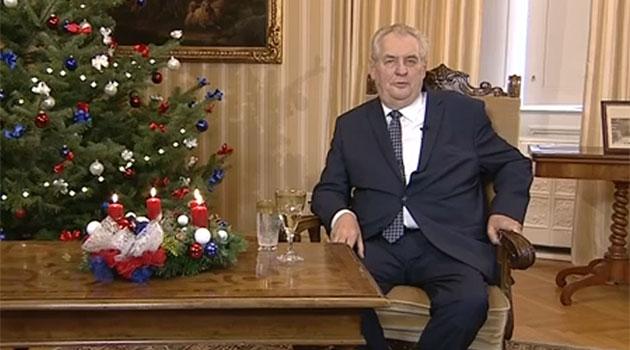Czech online media pro believes turning on critical thinking is easier than censoring the Internet

At the beginning of March, the ROMEA organization used its Facebook page to broadcast a second live educational webinar, this time featuring lecturer Pavel Kasík, an editor at Technet.cz, and a young student of andragogy, Denisa Maková on how to discuss fake news on the Internet and social networking sites with others. “Whenever anybody believes he or she knows something, it’s very difficult to demonstrate to that person that basically he or she does not,” Kasík said in the introduction, describing one of the problems he has encountered during his work in the media.
According to Kasík, text communication is to blame. During direct, “face to face”, personal confrontations, people have a better chance of catching somebody’s humor, hyperbole or irony and of comprehending the overall sense of what is being said instead of ending up at a dead end.
“Just because one person reads my text and I read theirs doesn’t mean we have heard each other, it means we are convinced that we know what the other person is saying and that we know what to say in return. I have begun giving several people who were interacting with me through text only my telephone number so we could speak together, and suddenly the misunderstanding we were having disappeared,” Kasík said.
The vast majority of people today spend a lot of time on the Internet, whether as part of their job or their personal interests. Recently, however, there have been more and more absolutely worthless, alarming and dangerous fake news items disseminated there.
In the discussion during the live broadcast the question was asked whether a solution to this problem might be, for example, blocking websites that publish disinformation. “I am not for censoring the Internet. It is much more important to involve critical thinking there. If we were to discuss censoring the Internet, then somebody would have to decide what was correct to publish and what was wrong,” Kasík said, warning of the danger of the bias that comes hand in hand with such decision-making power.
How (not) to argue
“Whenever we argue with anybody, we have the feeling that we are supposed to beat them with our arguments, but that’s the wrong approach, because the consequence of that is that nobody wins. By approaching argumentation and arguments like a battle, we deprive ourselves of the opportunity to close the discussion peacefully. I am not a proponent of the opinion that one should never argue with anybody on the Internet. I believe people can argue, but they must be curious about the other person and kind to the other person while they do so,” Kasík said.
He gave a concrete example of this principle: “In the game called ‘Aktivita’, I can’t score a point on my own, but my partner and I score points when we understand each other. That is how we could perceive discussion in general. Winning is not when I stomp you into the ground, but when we are both glad to have understood each other. That is something that is frequently missing in the communication area.”
During the webinar an important warning was also expressed, namely, that we should not allow ourselves to be drawn into the absurd jousts that online “trolls” begin. “Trolls are people who make fun of everything on the Internet, who begin arguments, who intentionally insert themselves into discussions and then laugh at the others when they take the troll seriously. It’s good to clarify for yourself what your aim is when you enter a discussion. Is my aim to show everybody else how clever I am, to point out what the facts are, to be friendly, or to maintain my friendship with others?”
In conclusion, Kasík gives some advice about what to look out for during online discussions and what we would do well to take an interest in. “When we discuss things online, we should be capable of finding the relevant information and presenting it in context. We should ask people what they believe and why. On the one hand, we want them to know that we care, that we want to understand them, and we also want them to know that we are offering them our hand, that they will always have the opportunity to agree with us. We should not, therefore, begin our posts with phrases like ‘Only an idiot can believe this and that and I’m going to show you why you are an idiot…’,” he said.
To fact-check information in the Czech media, you can visit the websites hoax.cz or manipulatori.cz. Information and fake news from abroad can be fact-checked on the websites emergent.info, politicalfact.com, snopes.com or stopfake.org.
The aim of this project is to increase media literacy and was supported by the Erinnerung Verantwortung Zukunft Foudation. ROMEA’s first webinar of the series covered the subjects of online disinformation, hoaxes and manipulation.
